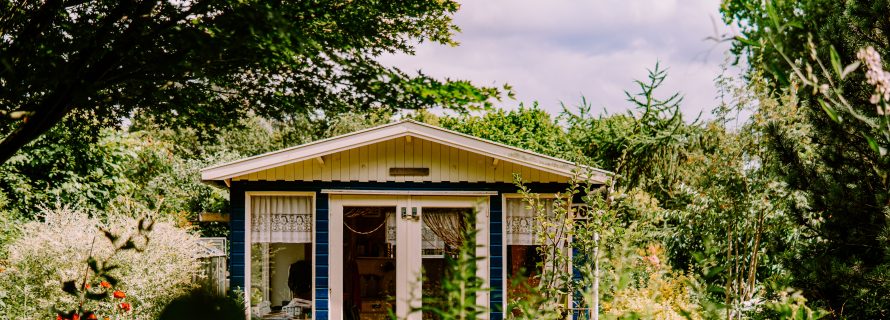How Do I Start Downsizing My House?

With the kids moved out and more time spent at home, many may look at downsizing to a smaller home or space to simplify their new lifestyle.
As you get older, the decision to downsize may be met with a mix of emotions. On the one hand, the memories tied to your family home may make it difficult to move onto this next stage. On the other hand, unused space, cleaning, and general upkeep all make it a challenge to continue living in a house that is now too big to maintain.
As overwhelming as downsizing might seem, making that decision to have a simple, stress-free and more economical life can improve your mental health and state of wellbeing. If you plan it right, downsizing is an easy thing you can do now to live out your retirement years on a new, clean slate.
Step 1: Evaluate your downsizing goals
The first step in your downsizing plan is to determine your goals or reasons why you want/need to downsize. It’s helpful to write a list of pros and cons and then have an open discussion with your partner and loved ones to give them time to process and adjust to this upcoming change.
Consider whether selling your current home and buying something smaller will help to simplify your daily life. You may find that moving into a smaller house will save you in household bills as well as cleaning and maintenance costs, helping you to live more stress-free.
If you are open to the prospect and have discussed it with family members, you may think about moving into a retirement village, apartment, granny flat, or even a tiny home. These alternative living arrangements allow you independence but make it easier to maintain your space and live more consciously. Carefully assess your needs and wants, and make a list of non-negotiables to help you along the process.
Common reasons why seniors choose to downsize include:
- Cost of living: Living in a smaller house will reduce expenses like heating and electricity and allow you more savings for your retirement.
- Maintenance: Living in your family home can be stressful with daily cleaning and maintenance, especially if most of the home is now unused.
- Health issues: For seniors experiencing illness or health issues, or worse still, problems in a nursing home, alternative living arrangements may help improve their wellbeing and sense of security, especially if no one is around to look after them anymore.
Step 2: Declutter
Downsizing means getting rid of any unnecessary belongings. While it might be hard to dispose of items that hold sentimental value, doing so will create more liveable space and less time having to spend cleaning. For items such as photo books, heirlooms, and trinkets, you may consider passing them onto a family member to look after and cherish. You can also sell or get rid of any unwanted items by having a garage or yard sale, donating them to a charity store, or selling them online.
Lightening your space is best started out slowly. Work through each section of the home methodically, and take inventory of items you want to take with you to your new living space. Remember, decluttering is giving way for a new fresh start, and is a crucial step in preparing your home to be sold.
Step 3: Maximize your empty space
Downsizing comes with a lot of potentials to be creative. Seniors can maximize their empty space at home to make life easier and even generate extra income. For example, if you choose to downsize but stay within your home, you can look at renting out a room or wing of the house as a short or long-term accommodation option.
This will provide you with extra cash to help put toward your retirement fund and give you added peace of mind. You can also turn unused space into a room to showcase or to support your passions, hobbies, and talents. Some seniors have turned their children’s empty rooms into spaces for relaxation, exercise, gaming, or even as hobby rooms for sewing, painting, and DIY projects.
Summing up
Downsizing brings with it the potential for a clean, new start. Retirement is meant to be lived and enjoyed fully — and getting rid of unused or unnecessary space and possessions means there is more room for financial freedom and peace of mind.
The next chapter in your life is what you make it, whether that is by selling up your family home and moving into a smaller home, by using your existing home to generate income, or by utilizing your space to make your home work better for you. By planning carefully and being open to compromise, downsizing will represent an important pivot point in your life that can see your retirement years being the best years of your life.
About The Author: Luke Fitzpatrick is a freelance journalist and has been published in a variety of publications such as Forbes, Tech In Asia and The Next Web. He is also a guest lecturer at the University of Sydney, lecturing in Cross-Cultural Management and the Pre-MBA Program.
Photo by Jean Carlo Emer on Unsplash
- Additions and New Construction
- All Exteriors
- Alterations
- Basements
- Bathrooms
- Customer Service
- Customer Stories
- Decks
- Design & Planning Show
- DIY
- Doors
- Educational Resources
- Extreme Makeover Home Edition
- Fashion Show
- General Remodeling
- Green Living
- Handyman Home Services
- Home Decor
- Home Entertainment
- Home Improvement
- Home Improvements
- How to Tips
- In The Community
- Kitchens
- Off-the-Wall Remodeling Stories
- Remodeling
- Resources
- Roofing
- Siding
- Social Media
- Sunrooms
- Tips & Tricks
- Trends
- Windows

